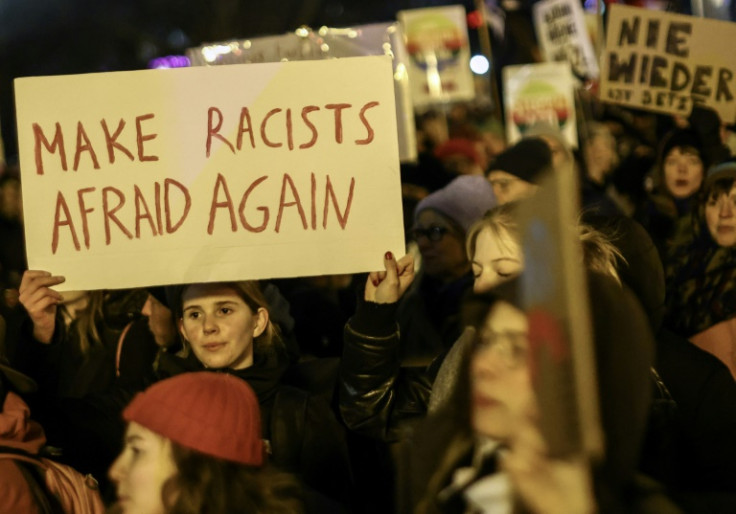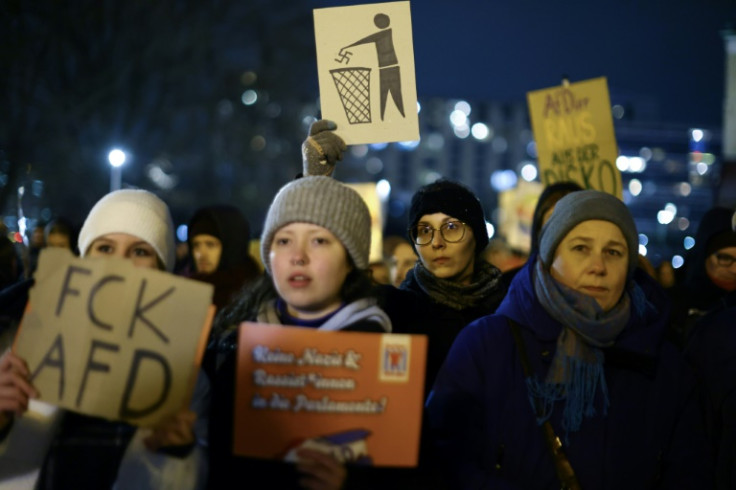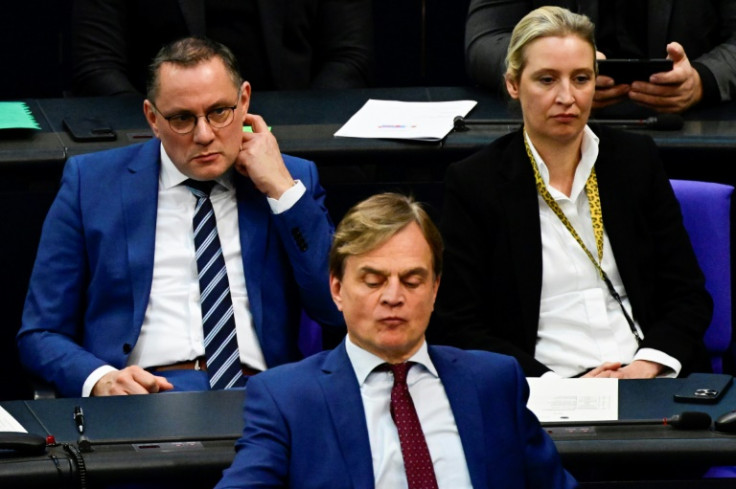
Revelations that members of Germany's far-right AfD discussed mass deportation plans are pushing tens of thousands of people to protest and sparking debate on whether the anti-immigrant party should be banned.
From Cologne to Leipzig to Nuremberg, Germans across the country have poured into the streets over the last week, with another 100 demonstrations expected through the weekend.
Many of the demonstrations are held under the banner "together against the far-right", with Chancellor Olaf Scholz and Foreign Minister Annalena Baerbock also joining a spontaneous gathering in Potsdam, where they live.
Bundesliga coaches and church bishops have also issued warnings against support for the AfD, with SC Freiburg manager Christian Streich saying that "anyone who does nothing now has learned nothing from school or history".
The sudden and widespread mobilisation was sparked by a January 10 report by investigative outlet Correctiv, which revealed that AfD members had discussed the expulsion of immigrants and "non-assimilated citizens" at a meeting with extremists.
Among the participants at the talks was Martin Sellner, a leader of Austria's Identitarian Movement, which subscribes to the "great replacement" conspiracy theory that claims there is a plot by non-white migrants to replace Europe's "native" white population.
News of the gathering sent shockwaves across Germany at a time when the AfD is soaring in opinion polls, just months ahead of three major regional elections in eastern Germany where their support is strongest.
The "scandalous meeting" revived "the fear of deportations of millions of citizens or non-citizens, a fear that is part of the criticised heritage of Nazism," said Hajo Funke, a political analyst who specialises in the far right.
The "silent majority must wake up and take a clear position against extremism in Germany", domestic intelligence chief Thomas Haldenwang said.
In a statement on Friday, Scholz said any plan to expel immigrants or citizens alike amounted to "an attack against our democracy, and in turn, on all of us".
He urged "all to take a stand -- for cohesion, for tolerance, for our democratic Germany".
Thousands of people answered the call on Friday in Hamburg, waving anti-AfD posters.
"We can't make the same mistake again, I find it terrible that we have learnt nothing," said Amelie Schmerling, 76, adding that it was "very important that many people show that we are not for the far right".
Another retiree, Gesien Schaeunemann, 67, told AFP that society must stand up against the AfD, which "uses democratic structures but has anti-democratic thoughts".
The AfD was created in 2013 as an anti-euro outfit before seizing on anger over mass migration to Germany to garner enough votes to enter the Bundestag in 2017.
While support for the party eased subsequently, it has enjoyed a resurgence over the last year, feeding on frustration as Germany grapples with soaring inflation and a weak economy.
Nationwide, the party is polling at about 22 percent, behind the conservatives but well above Scholz's social democrats at about 16 percent.
In eastern Germany however, it is leading the polls, with more than 30 percent in the states of Thuringia, Saxony and Brandenburg, which are all holding regional elections in September.
The AfD had planted itself firmly onto the political landscape since its entrance in the Bundestag but after the meeting unveiled by Correctiv, "this normalisation of the party is over", Funke said.
The AfD confirmed the presence of its members at the meeting, but has denied taking on the "remigration" project championed by Sellner.
But the scandal unveiled "the real face" of the party, said Lars Klingbeil, co-leader of Scholz's SPD.
Voices calling for an outright ban of the party have also grown louder.
Even if it has few chances of succeeding, a petition demanding the removal of constitutional rights for Bjoern Hoecke, one the AfD's most controversial politicians, has garnered a million signatures.
Several branches of the AfD are already under close surveillance by the domestic intelligence agency and in this context, "the state should look at a possible ban of the AfD", said Wolfgang Thierse, a former speaker of parliament.
But others are sceptical about the effectiveness of launching such a long and complex process, as failure to win the ban risks further nourishing the AfD's "victim narrative".
But "if it's proven that a party wants to transform the country into a fascist state, it must be banned, no matter how powerful it is," said Vice Chancellor Robert Habeck in an interview with Stern magazine.









